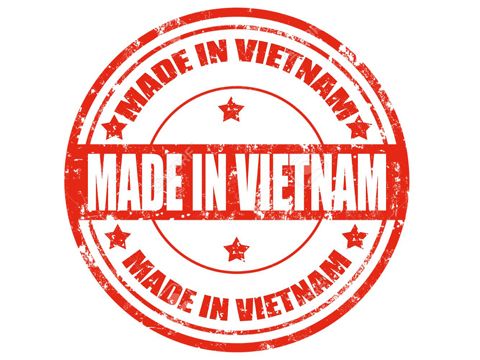 Economy
Economy

Many products and goods whose accessories are imported from foreign countries and assembled and processed in Việt Nam are sometimes labelled "Made in Vietnam", which has sparked public concern.

|
| Many products and goods whose accessories are imported from foreign countries and assembled and processed in Việt Nam are sometimes labelled "Made in Vietnam", which has sparked public concern. — Photo brandsvietnam.com |
HÀ NỘI — A circular on "Made in Vietnam" products was expected to help businesses avoid accusations of fraud, said Deputy Minister of Industry and Trade Trần Quốc Khánh at a conference held in Hà Nội on Wednesday.
The event was held to hear opinions from enterprises and associations on the draft circular, which describes how to identify Vietnamese goods and products.
Many products and goods whose accessories are imported from foreign countries and assembled and processed in Việt Nam are sometimes labelled "Made in Vietnam", which has sparked public concern.
Khánh said the Ministry of Industry and Trade (MoIT) in August had completed a draft circular on how to identify Vietnamese-made goods.
MoIT has published the draft publicly and will organise two seminars in Hà Nội and HCM City to collect comments from the public, businesses and relevant ministries before finalising the report and sending it to the Prime Minister. It will then be reviewed again before it is officially issued.
“This circular will not incur costs for enterprises, but help enterprises to more accurately label their products to avoid the risk of alleged fraud of origin, and gradually eliminate the situation of imported goods being disguised as Vietnamese goods," Khánh noted.
Sharing the urgency of the Circular, Trần Thanh Hải, deputy director of MoIT's Import-Export Department, said the quality of many Vietnamese products and goods had risen significantly, creating consumer confidence.
However, this situation has also led to more goods being "disguised" as Vietnamese goods, causing bad competition and pressure on domestic producers.
"This circular not only concerns the labelling of 'made in Vietnam' goods, but more importantly, defines what a Vietnamese product is," Hải said.
He said the circular's most important principle was to lessen the need for administrative procedures for businesses.
The draft will be the basis for creating fair competition for businesses that are diligent in their research, creativity and branding.
Regarding labelling, Trần Thị Thu Hương, director of the Centre for Commercial Document Certification at the Vietnam Chamber of Commerce and Industry (VCCI), pointed out there was already a decree issued by the Government on labels that clearly defined the scope to regulate the matter.
Therefore, it was necessary to consider whether or not this draft circular should be issued or to focus on expanding the existing circular for goods in Việt Nam, Hương suggested. — VNS